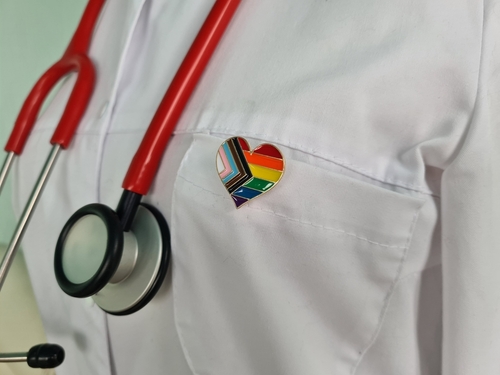Son of Italian immigrants, Dr. Joseph Giordano passed away at the age of 84. He was the surgeon who saved the life of President Ronald Reagan during the 1981 assassination attempt. Following gunfire from would-be assassin John Hinckley Jr. outside the Washington Hilton, his emergency surgical intervention was essential to Reagan’s survival. The modest doctor who founded the trauma center at George Washington University Hospital left behind a lasting legacy of excellence that influenced contemporary emergency medicine.
American Hero Who Saved a President
On March 30, 1981, John Hinckley Jr., obsessed with actress Jodie Foster, attempted to assassinate President Ronald Reagan in Washington, D.C. The president was struck by a bullet that ricocheted off his limousine, causing serious injuries, including a punctured lung, and leaving the projectile dangerously close to his heart.
Today, we mourn the loss of Dr. Joseph Giordano, the surgeon who helped save President Reagan’s life following the 1981 assassination attempt. He once shared this memorable exchange from that day:
“President Reagan said to me, ‘I hope you’re all Republicans,’ and I replied,… pic.twitter.com/djpp76yOv2
— Ronald Reagan Presidential Foundation & Institute (@RonaldReagan) July 1, 2025
Dr. Joseph Giordano, then chief of surgery and director of the trauma center at George Washington University Hospital, responded immediately when paged about an incoming emergency. “A stat page was scarce, so I was curious,” Giordano once recalled, “I walked into the ER and there were all these people there, then I saw the president lying on a gurney.”
RIP, Dr. Joseph Giordano, the surgeon who helped save President Reagan’s life following the 1981 assassination attempt. He once shared this memorable exchange from that day:
“President Reagan said to me, ‘I hope you’re all Republicans,’ and I replied, ‘Today, we’re all… pic.twitter.com/oMzPZPfzd1— Carol RN *Miss Rush & the Gipper* 👩⚕️🇺🇸 🇮🇱🦈 (@pasqueflower19) July 2, 2025
The skilled surgeon quickly assessed Reagan’s condition and made the critical decision to perform emergency surgery to remove the bullet. “He was seriously injured. I think close to dying,” Giordano later stated about Reagan’s condition when he arrived at the hospital.
From Immigrant Family to Presidential Surgeon
Dr. Giordano’s life embodied the American dream as the son of Italian immigrants and the first in his family to attend college. His dedication to medicine and commitment to excellence led him to organize the trauma unit at GW Hospital, ultimately achieving the prestigious Level I trauma center certification.
President Reagan himself recognized Giordano’s exceptional service and family heritage during a National Italian American Foundation dinner in 1984. The event highlighted the Giordano family’s dedication to hard work and pursuit of excellence, exemplifying core American values.
The successful operation on President Reagan not only saved a president but also elevated GW Hospital’s reputation nationally. “It’s affected my life ever since,” Giordano once said, “It put GW on the map, and it had a very positive impact on all of us who took care of the president.”
Legacy of Service and Sacrifice
The 1981 assassination attempt resulted in more casualties than just the president, with White House press secretary James Brady, Secret Service agent Tim McCarthy, and D.C. police officer Thomas Delahanty also wounded in the attack. Brady suffered permanent brain damage from his injuries and died in 2014, with his death ruled a homicide resulting from the shooting.
“In control here,” Secretary of State Alexander Haig famously but incorrectly claimed in the aftermath of the shooting, creating confusion about the chain of command until Vice President George H. W. Bush returned to Washington. Despite the severity of his injuries, Reagan showed remarkable resilience and returned to the Oval Office on April 25, 1981, just weeks after the shooting.
Dr. Giordano’s swift action and surgical expertise not only saved President Reagan’s life but also preserved a crucial period in American history. The hospital received substantial donations following the successful treatment of the president, allowing Giordano to develop further trauma care protocols that have saved countless lives in the decades since.
The assassination attempt led to national discussions on gun control, eventually resulting in the Brady Handgun Violence Prevention Act in 1993. Meanwhile, Hinckley was found not guilty because of insanity in 1982 and confined to a psychiatric facility until his conditional release in 2016. This controversial decision continues to spark debate about justice and mental health in America.
Sources:
https://en.wikipedia.org/wiki/Attempted_assassination_of_Ronald_Reagan

